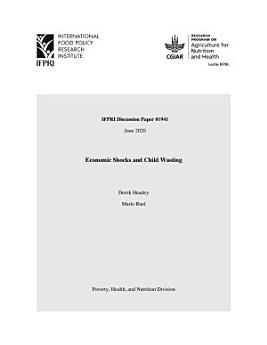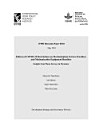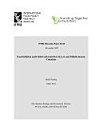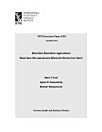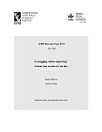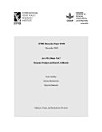Economic shocks and child wasting
Headey, Derek D. · Ruel, Marie T.
IFPRI Discussion Paper መጽሐፍ 1 · Intl Food Policy Res Inst
ኢ-መጽሐፍ
37
ገጾች
family_home
ብቁ
info
reportየተሰጡት ደረጃዎች እና ግምገማዎች የተረጋገጡ አይደሉም የበለጠ ለመረዳት
ስለዚህ ኢ-መጽሐፍ
In developing countries macroeconomic volatility is common, and severe negative economic shocks can substantially increase poverty and food insecurity. Less well understood are the implications of these contractions for child acute malnutrition (wasting), a major risk factor for under-5 mortality. This study explores the nutritional impacts of growth shocks over 1990-2018 by linking wasting outcomes collected for 1.256 million children from 52 countries to lagged annual changes in national income. Difference-in-difference estimates suggest that a 10% annual decline in national income increases moderate/severe (WHZ<-2) and severe wasting (WHZ<-3) by 14 and 22 percent. An exploration of possible mechanisms suggests negative economic shocks increase risks of diarrhea, fever, and maternal underweight prevalence, and reduce child dietary diversity. Applying these results to the predicted economic impacts of COVID-19 suggests that millions of pre-school children are at increased risk of wasting and wasting-related morbidity and mortality unless urgent preventative action is taken.
ለዚህ ኢ-መጽሐፍ ደረጃ ይስጡ
ምን እንደሚያስቡ ይንገሩን።
የንባብ መረጃ
ዘመናዊ ስልኮች እና ጡባዊዎች
የGoogle Play መጽሐፍት መተግበሪያውን ለAndroid እና iPad/iPhone ያውርዱ። ከእርስዎ መለያ ጋር በራስሰር ይመሳሰላል እና ባሉበት የትም ቦታ በመስመር ላይ እና ከመስመር ውጭ እንዲያነቡ ያስችልዎታል።
ላፕቶፖች እና ኮምፒውተሮች
የኮምፒውተርዎን ድር አሳሽ ተጠቅመው በGoogle Play ላይ የተገዙ ኦዲዮ መጽሐፍትን ማዳመጥ ይችላሉ።
ኢሪደሮች እና ሌሎች መሳሪያዎች
እንደ Kobo ኢ-አንባቢዎች ባሉ ኢ-ቀለም መሣሪያዎች ላይ ለማንበብ ፋይል አውርደው ወደ መሣሪያዎ ማስተላለፍ ይኖርብዎታል። ፋይሎቹን ወደሚደገፉ ኢ-አንባቢዎች ለማስተላለፍ ዝርዝር የእገዛ ማዕከል መመሪያዎቹን ይከተሉ።
